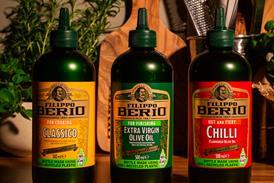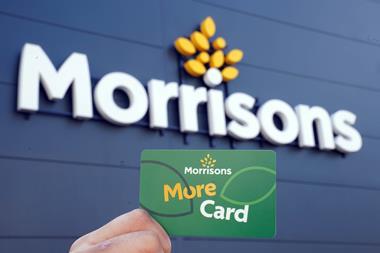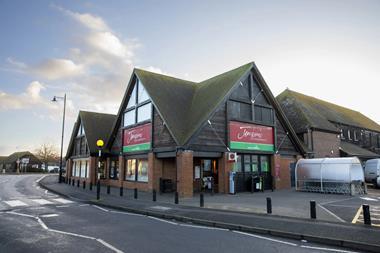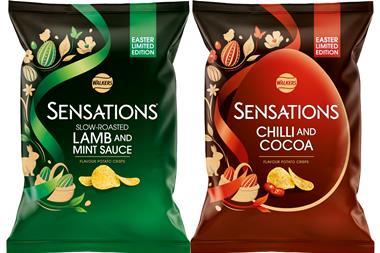The ethnic retail market is still markedly different to the mainstream stores' offer. The average consumer will buy 5.2kg of rice a year, while the ethnic consumer may buy up to 30 times that amount, therefore pack sizes are much larger. And, unlike the mainstream market, brand loyalty is very high, because mst ethnic consumers have grown up eating the same brand of rice.
Westmill Foods supplies Tolly Boy, the leading long grain rice brand with about 75% of this market. It is sold to the Chinese restaurant market with packaging written in English and Mandarin, but predominantly it is bought by the Bengali community who are the biggest consumers of rice. "Long grain rice is the staple diet for Bengalis," says Rakesh Oberoi, marketing controller for Westmill's ethnic division. "They will have two or three rice meals a day, so basmati rice would prove too expensive. Indians and Pakistanis on the other hand tend only to purchase basmati rice in smaller quantities because they often have chapattis instead of rice with their meals."
Westmill has always had a basmati brand, Guru, but this was sold mainly into restaurants. So to fit the strategy of different brands for different markets, Westmill launched Asli Basmati to the ethnic retail market in March. The rice is an extension of Asli Atta, one of the biggest selling chapatti flour brands, and Westmill has used this link to market a number of cross-brand promotions.
Tilda's Pure basmati is the leader in the basmati market. "The ethnic market is a large part of our business and where we came from," says Deborah Batten, Tilda's brand manager. Tilda has been advertising on Asian channel Zee TV, concentrating on the heritage of the brand with the catchline I love my Mum's cooking'.
Veetee is another big ethnic market player, investing £1m this year in marketing and advertising, but it sees the future of the market changing. "To buy traditional foods and ingredients, Asian consumers have to do two shopping trips  once to a supermarket for everyday groceries and then a trip to a local independent Asian store, where there are often no parking facilities and no trolleys to get the load back," says a Veetee spokesman.
Veetee has set up an ethnic task force that works with the multiples to support and educate them about the ethnic market.
"It's about postcode marketing," says Veetee's marketing manager Tony O'Connor. "For example, Tower Hamlets has a large Bengali community so stores should stock large packs of long grain rice, while Leicester is a strong Gujarati area and they consume large volumes of Indian basmati rice."
Despite this trend Map Trading continues to sell only its leading brand, White Pearl, to independent stores. "The multiples are catching on to the ethnic market but the Asian independent retailers will always be around," says sales and marketing manager Gurmail Singh Lal.
White Pearl is the leading Pakistani basmati brand and sales grew 25% this year. Map Trading is extending the White Pearl brand to include curry pastes, tils, minced spices and oils.
{{FOCUS ON }}
Westmill Foods supplies Tolly Boy, the leading long grain rice brand with about 75% of this market. It is sold to the Chinese restaurant market with packaging written in English and Mandarin, but predominantly it is bought by the Bengali community who are the biggest consumers of rice. "Long grain rice is the staple diet for Bengalis," says Rakesh Oberoi, marketing controller for Westmill's ethnic division. "They will have two or three rice meals a day, so basmati rice would prove too expensive. Indians and Pakistanis on the other hand tend only to purchase basmati rice in smaller quantities because they often have chapattis instead of rice with their meals."
Westmill has always had a basmati brand, Guru, but this was sold mainly into restaurants. So to fit the strategy of different brands for different markets, Westmill launched Asli Basmati to the ethnic retail market in March. The rice is an extension of Asli Atta, one of the biggest selling chapatti flour brands, and Westmill has used this link to market a number of cross-brand promotions.
Tilda's Pure basmati is the leader in the basmati market. "The ethnic market is a large part of our business and where we came from," says Deborah Batten, Tilda's brand manager. Tilda has been advertising on Asian channel Zee TV, concentrating on the heritage of the brand with the catchline I love my Mum's cooking'.
Veetee is another big ethnic market player, investing £1m this year in marketing and advertising, but it sees the future of the market changing. "To buy traditional foods and ingredients, Asian consumers have to do two shopping trips  once to a supermarket for everyday groceries and then a trip to a local independent Asian store, where there are often no parking facilities and no trolleys to get the load back," says a Veetee spokesman.
Veetee has set up an ethnic task force that works with the multiples to support and educate them about the ethnic market.
"It's about postcode marketing," says Veetee's marketing manager Tony O'Connor. "For example, Tower Hamlets has a large Bengali community so stores should stock large packs of long grain rice, while Leicester is a strong Gujarati area and they consume large volumes of Indian basmati rice."
Despite this trend Map Trading continues to sell only its leading brand, White Pearl, to independent stores. "The multiples are catching on to the ethnic market but the Asian independent retailers will always be around," says sales and marketing manager Gurmail Singh Lal.
White Pearl is the leading Pakistani basmati brand and sales grew 25% this year. Map Trading is extending the White Pearl brand to include curry pastes, tils, minced spices and oils.
{{FOCUS ON }}













No comments yet